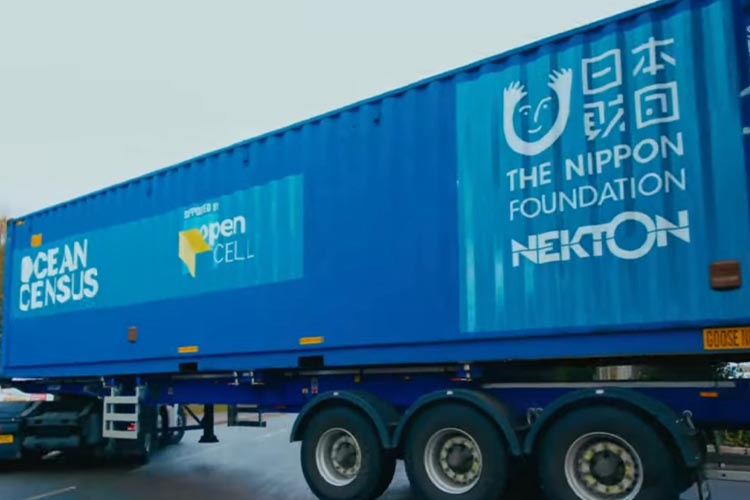
Repurposed mobile shipping container COVID labs are being deployed to assist with ocean research across the globe
By DIVE Staff
A pair of state-of-the-art mobile shipping container laboratories were deployed last year as part of an innovative toolkit developed by Ocean Census – an international network of research partners co-founded by the Nippon Foundation and Nekton – and OpenCell Labs, a company specialising in creating laboratories for startup biotech organisations.
Ocean Census says it formed the partnership with OpenCell Labs as part of ‘a global effort to accelerate the pace of ocean species discovery.’ The mobile laboratories will enable marine scientists to conduct taxonomic investigations while on location, helping to support the delicate preservation and recording process after samples are recovered.
The group hopes to identify 100,000 new marine species over the next decade, with the two laboratories having been successfully deployed during the recent November-December 2023 Ocean Census Macaronesia Expedition, based out of Radazul Marina in Tenerife. The deployment follows the success of Ocean Census’ previous expeditions, which included the 2023 E/V Nautilus expedition to the North Pacific’s Johnston Atoll, during which a fossilised megalodon tooth was discovered for the first time in-situ on the ocean floor, and a prior expedition to the Barents Sea led by Norway’s University of Tromsø.
Related articles
The collaboration between OpenCell and Ocean Census is part of a joint effort to demobilise resources that had originally been deployed for use during the COVID pandemic, and redirect them toward urgent environmental concerns.
‘During the global pandemic, we united on a global scale to use our skills and knowledge to address one of humanity’s most critical crises,’ said Helene Steiner, CEO of OpenCell. ‘Now, we apply this expertise in collaboration with Ocean Census to tackle another pressing emergency – the biodiversity crisis.’
The first usage of the containerised laboratories provided by OpenCell during the Ocean Census Macaronesia – Tenerife Submersible & Diver Expedition, has already proven a great success, with a number of species previously unknown to science discovered during the expedition, thanks in part to the availability of the mobile labs
‘These mobile laboratories will not only streamline the process of species identification and data gathering but also enhance the efficiency of research conducted in remote and often challenging marine environments,’ said Daniel Moore, Ocean Census Expedition Science Manager. ‘The use of these advanced laboratories in the Ocean Census Macaronesia Expedition is a prime example of how the programme is integrating cutting-edge technology with field research to accelerate the understanding and preservation of marine biodiversity.’



